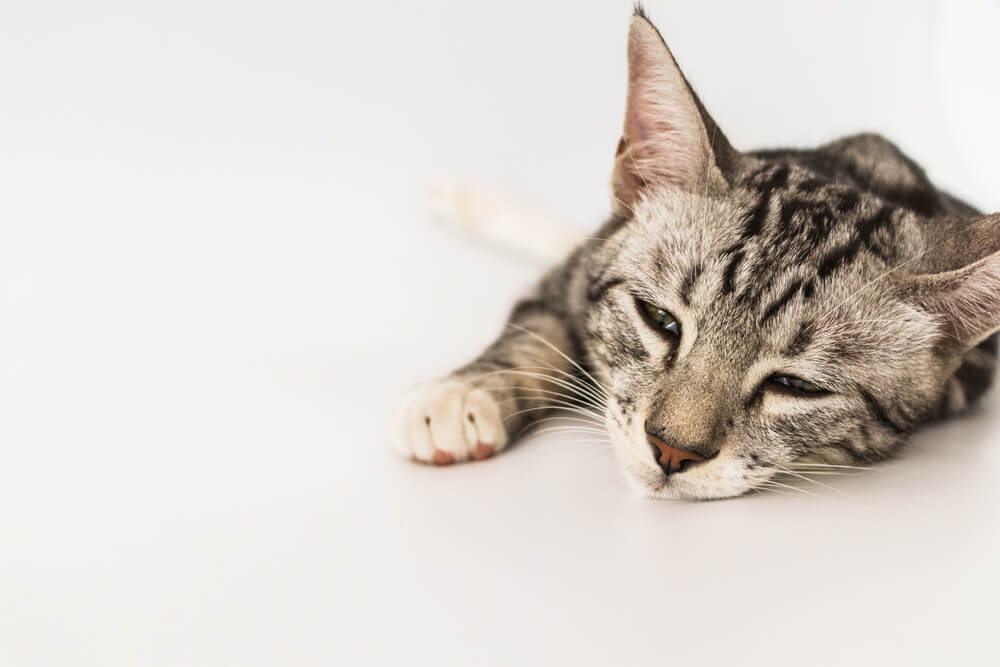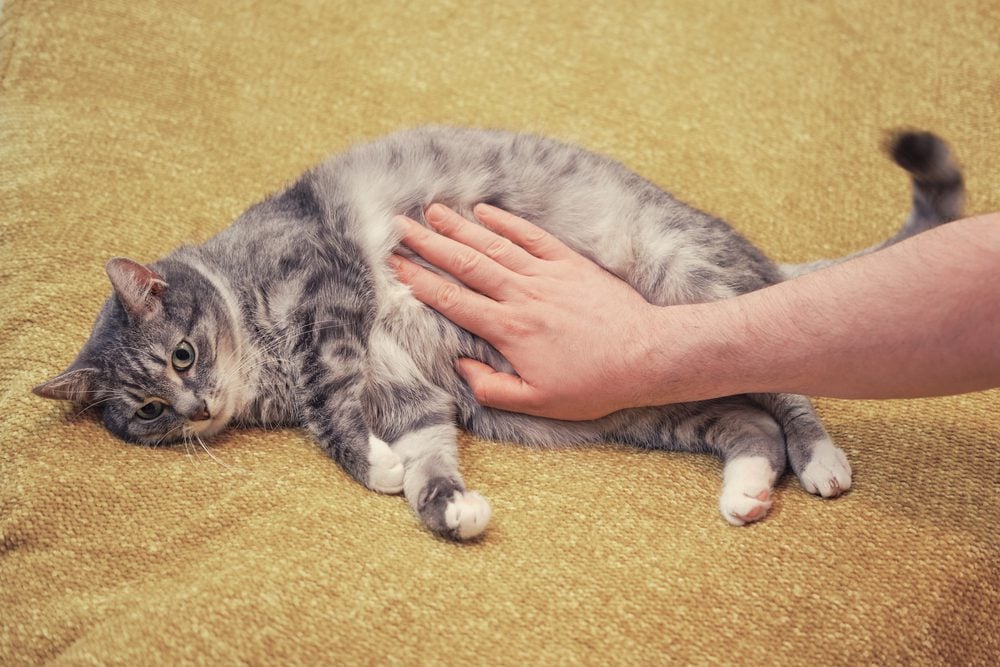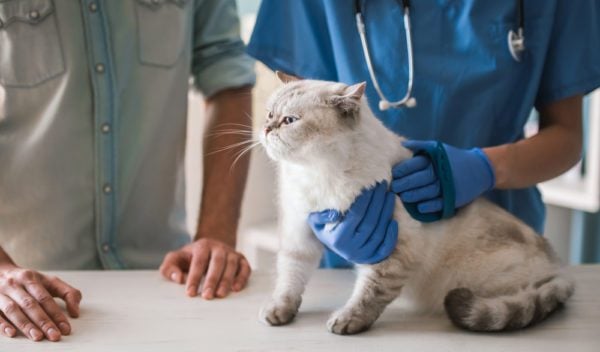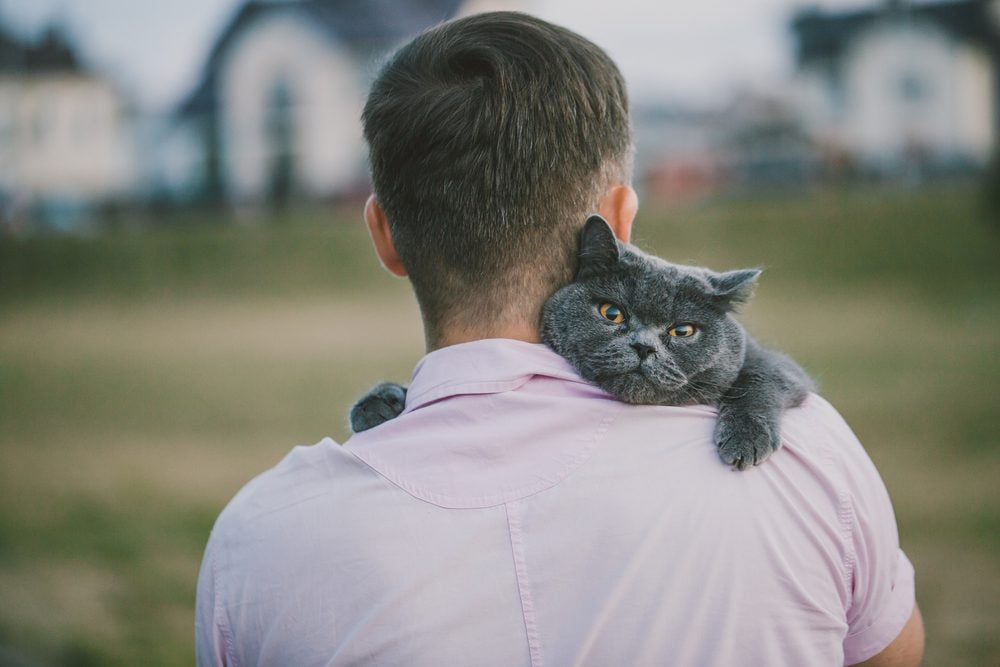Your Guide to Probiotics for Cats Side Effects

Table of Contents
Probiotics are a huge trend in the cat universe. A daily dose of beneficial bacteria is the boost your cat’s gut microbiome needs, and studies show that they promote optimum health.
But are probiotics universally good for cats? Or are there specific considerations and individual risk factors? And can probiotics cause side effects in cats?
In this article, we will talk about the safety, considerations, and potential side effects of probiotic supplements for cats. Keep reading as we will answer these questions and address some widespread concerns.
Are Probiotics Safe for Cats?

Yes, when used adequately – under the vet’s careful monitoring and following the manufacturer’s guidelines, probiotics for cats are safe. In fact, probiotics can be used in all cats regardless of age category.
But, let’s first explain what probiotics are and what they do. Trillions of live microorganisms inhabit the cat’s digestive tract. Some of them are good and beneficial, and others are bad and harmful.
In a healthy gut, there is always a balance between the good and the bad microbes. Sadly, this balance can be compromised by faulty diets, sudden diet changes, stress, antibiotics, or GI tract infections and illnesses.
In such cases, to prevent harmful bacteria overgrowth and toxins buildup, cats need probiotics. From this explanation, it is safe to assume that probiotics are live bacteria and yeast critical for keeping the gut microbiome in balance.
Possible Side Effects of Probiotics for Cats
A study investigating the efficacy of probiotics in cats reported that “all of the cats remained healthy throughout the study, with no side effects.” Since probiotics include strains that are normal inhabitants of the cat’s microbiota, they are considered “relatively safe to use.”
However, probiotics can cause side effects in overly sensitive cats. In fact, any supplement has the potential to trigger vomiting and diarrhea, especially if added to the menu suddenly and in more significant amounts.
Dr. Debra Eldredge, DVM, says that “rarely, probiotics can cause mild stomach upset or extra gas.” These reactions are often due to allergies and intolerances to some of the added inactive ingredients. For example, a cat with chicken or beef allergy is likely to develop stomach upset if supplemented with a probiotic featuring chicken or beef proteins or flavors.
We should note that the risk of side effects is greater in cats supplemented with “high-dose multistrain probiotics.” Therefore, it is advisable to start with a smaller dose from a simpler probiotic formula featuring a single strain.
Another factor increasing the risk of side effects is the quality of the probiotic. According to Pet Basics, “side effects are infrequent for good-quality probiotics.” However, the probiotic market lacks proper regulations.
An assessment study from 2011 found marketing errors, misspellings, false label claims, and viability issues with most of the examined probiotic products. To avoid this issue when shopping for probiotics, stick to reputable brands and high-quality probiotic formulas.
Can Cats Overdose on Probiotics?
Yes, in theory, it is possible for cats to overdose on probiotics. However, in practice, such situations are rare as it would take significant amounts of good bacteria to cause an overdose.
Plus, the consequences of an accidental probiotic overdose are rarely severe and usually manifest in the form of digestive upsets. If you suspect your cat overdosed on probiotics, give your trusted veterinarian a call.
Can You Give a Cat too Much Probiotics?
Yes, it is possible to give your cat too much probiotics, and contrary to popular belief, too many beneficial gut bacteria do not result in increased gut health.
Namely, when you supplement your cat with high doses of probiotics, the good bacteria start competing, leading to microbiome imbalance (a state called dysbiosis).
Therefore, it is best advised to follow the manufacturer’s dosage guidelines and talk to your vet if you have any doubts.
Risks and Considerations on Probiotics for Cats

We recommend talking to your trusted veterinarian before sprinkling probiotic powders on your cat’s food or giving her probiotic chews and treats. Although generally safe and health-boosting, probiotics are not suited for all cats.
For example, probiotic supplements are not recommended for cats with severe immune system issues, cats with severely compromised GI tract health, and cats undergoing chemotherapy.
Additionally, since probiotics are microorganisms, some of them are sensitive, while others are resistant to antibiotics. Therefore, you need to make sure the antibiotics are complementary to the type of probiotics or give them separately.
Finally, different strains of probiotics work in different parts of the cat’s digestive system, thus providing different benefits. It would be best if you supplement your cat with the type suited for her unique needs. For example, Bifidobacterium spp. helps with digestion, Enterococcus spp. manages diarrhea, and Lactobacillus spp. supports the immune system.
Can Probiotics Make a Cat Sick?
Although rare, probiotics can make a cat sick. Basically, this can occur in three scenarios:
- If you accidentally exceed the daily dose and give your cat too much good bacteria.
- If the probiotics interact with another medication or supplement your cat receives.
- If your cat is allergic to some of the ingredients in the probiotic formula.
It should also be noted that probiotics can sometimes make the cat’s symptoms worse before managing the situation and returning the condition to baseline.
Can Probiotics Interact with a Cat’s Medication?
Basically, all medications have the potential to interact with each other. This includes supplements, vitamins, and even herbal therapies. That is why it is advisable to talk to your vet before adding probiotics to your cat’s menu, especially if already receiving other meds.
The most important interaction is between probiotics and antibiotics or antifungals. These medications cannot differentiate between good microorganisms and harmful microorganisms, meaning they can kill the beneficial bacteria and yeasts in the probiotics, thus defeating the purpose of using probiotic supplements in the first place.
What Type of Probiotics are Healthy for Cats
There are different types of probiotics for cats, but they are all members of the cat’s normal gut flora. The ideal supplement should contain between 2 and 5 probiotic strains from this list:
- Enterococcus spp live in the large intestine, thus contributing to colon health and managing loose stools and stress-triggered diarrhea. The most commonly used probiotic strain from this family and generally in cat probiotics is the:
- Enterococcus faecium
- Bifidobacterium spp lives in the small intestine and supports healthy digestion. They also increase nutrient absorption, help with weight management, have anti-inflammatory properties, and promote calmness. Popular strains include:
- Bifidobacterium animalis
- Bifidobacterium bifidum
- Bifidobacterium longum
- Streptococcus spp bacteria have anti-inflammatory and anti-microbial effects, especially against oral pathogens resulting in improved dental health and fresh breath. The most well-known strain is the:
- Streptococcus thermophilus
- Lactobacillus spp microorganisms have versatile functions, from supporting the cat’s digestive tract through protecting from GI illnesses to boosting the immune system. Popular probiotic microorganisms from this family include strains like:
- Lactobacillus acidophilus
- Lactobacillus plantarum
- Lactobacillus rhamnosus
- Bacillus spp are gram-positive microorganisms with strong immune function ability to support intestinal health. They are extra efficient in managing and preventing different forms of diarrhea. The two most regularly used strains are:
- Bacillus coagulans
- Bacillus subtilis
At this point, we should note that human probiotics are not safe for cats. They contain different strains of good bacteria, too many colony-forming units, and potentially harmful ingredients to cats.
For safe and efficient use, stick to a feline probiotic formula and pay attention to the added ingredients like prebiotics, digestive enzymes, vitamins, and minerals. Finally, pay attention to how you store the supplement – preferably in a cool and dry place (no need for refrigeration).
Our Final Thoughts on Side Effects of Cat Probiotics

Cat probiotic supplements can boost the cat’s health and well-being when used adequately.
Probiotics are considered to be generally safe, well-accepted, with rare and benign side effects. Purchasing a high-quality probiotic product for your cat reduces the risk of potential adverse reactions.
If you are looking for a premium-quality probiotic product, try our Honest Paws Pre + Probiotic Supplement.















